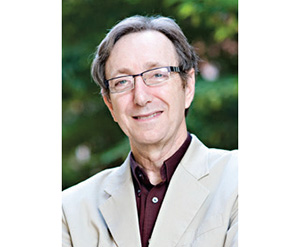
It was ridiculously warm outside late Tuesday afternoon.
And the last thing my Jewish day school high school students wanted to do was stay inside on a bright, balmy February 75-degree afternoon. They asked if we could hold class outside. It was too beautiful to stay in.
With permission granted, they ran outside as free as birds or as free as happy teenagers should be.
When we crowded around two picnic tables, there was some kvetching about sitting in the sun. There were traffic noises coming from the parking lot, and a huge black bird glided against a beautiful blue sky backdrop. And I took out my lesson plan on the European Jewish Enlightenment, better known as the Haskalah.
But the students had something else on their minds. They clearly wanted to discuss Florida.
Sadly, we all know what just saying “Florida” means in these recent days. These are honors Jewish modern history students who wanted to talk about their fellow high schoolers at the Marjory Stoneman Douglas High School in Parkland, Florida, the site of last week’s mass shootings of 17 students and faculty members by an armed, deranged young man.
Around a picnic table where students are more likely to be eating lunch or chatting, these students engaged one another in difficult, yet respectful dialogue. Their parents and teachers would have been proud to have witnessed such intuitive thinking.
Whether they agreed or disagreed with one another, they weren’t necessarily seeking what was probably an impossible measure of closure. No, instead, they wanted to be heard. It wasn’t about agreeing or disagreeing. This discussion was more about seeing one another as young adults who will one day vote, pay taxes and even parent their own children.
There was the girl who believes in the right to own guns and who challenged the rest on whether the Florida shootings was even a gun-control issue.
There was her classmate who suggested strongly that the discussion be focused on how mentally ill people can be prevented from purchasing firearms.
Most of the students wanted to talk about the facts and statistics connected with mass shootings, especially those that happen in schools.
One lone student insisted, however, that when it comes to this issue in particular, that a person’s emotions and feelings are as important as the facts.
We learned of one student who said her father was more impacted by these mass shootings than when he learned of JFK’s assassination as a fifth grader and later the murders of Bobby Kennedy and Dr. Martin Luther King Jr. as an eighth grader.
Why?
The availability of visuals on social media—that’s what many around these two picnic tables concluded. To see the images come from a smartphone of a Douglas student in hiding and hearing the gunshots nearby has perhaps a greater impact than anything the JFK Zapruder film frames could show.
“I never wanted to look at school in such a way that parents were hugging their kids for the last time when they dropped them off in the morning or that teachers were going to school to protect their children from gun shots,” said one student.
There was also no question—they agreed that digital gaming has desensitized many members of their generation.
At that point another class was walking by. A couple of students from that class wandered over to see what we were discussing.
We were wondering out loud how the Florida shooting can stay important and relevant, and not drop out of the nation’s discussion, replaced by a presidential tweet, the stock market or God forbid, another mass shooting.
“We’ve got to keep talking about this,” said one student. “And no matter what happens, we have to bring it up again, and again and again. We can’t stop talking about it. We owe it to those teenagers and their teachers.”
Their memory cannot die with time, agreed the students. How else will we learn to never let it happen again?
The bell rang ending the period, and ironically the students, locked out of the school, had to be admitted back in.
For that hour outside we were supposed to be learning about the Enlightenment.
Based on the mature level of what these high school students said, it seems as if we had.
By Phil Jacobs










